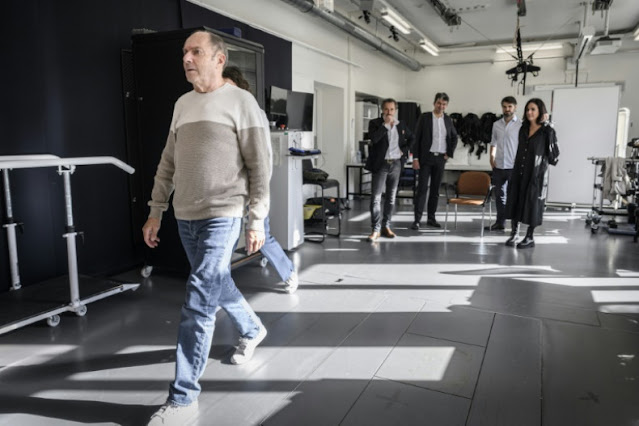Parkinson's disease is a progressive and debilitating neurodegenerative disorder that affects millions of people worldwide. It is characterized by a range of symptoms, including tremors, stiffness, slow movement, and postural instability. As the disease advances, many individuals with Parkinson's find it increasingly difficult to walk and maintain their balance, significantly impacting their quality of life.
While there is no cure for Parkinson's disease, various treatment options are available to manage its symptoms. Medications, physical therapy, and deep brain stimulation (DBS) have been employed to alleviate some of the challenges associated with the condition. However, these approaches are often limited in their effectiveness, especially in addressing mobility and gait problems.
The recent success story involves a novel implant that targets the debilitating effects of Parkinson's disease on a patient's ability to walk. This implant, developed through a collaborative effort between medical researchers and engineers, represents a remarkable advancement in the field of medical technology.
The implant, known as the "NeuroGait Restorer," is surgically placed within the patient's brain and connected to a small external device that communicates with the implant using wireless technology. The device monitors the patient's movements in real time and delivers precise electrical impulses to specific areas of the brain responsible for controlling motor functions.
The NeuroGait Restorer operates on a closed-loop system, meaning it constantly adapts and adjusts its stimulation patterns to the patient's unique gait and movement requirements. This personalized approach is a key element of the implant's success. By closely monitoring the patient's movements and making real-time adjustments, the implant effectively mitigates the debilitating symptoms of Parkinson's disease that affect walking and balance.
The first recipient of the NeuroGait Restorer implant, a 62-year-old man diagnosed with Parkinson's disease more than a decade ago, has experienced a remarkable transformation. Prior to the implant, he struggled to walk even short distances, relying heavily on a walker for mobility. After the implant's activation, he demonstrated a significant improvement in his gait and balance. The man's newfound ability to walk with greater ease has not only improved his physical health but has also positively impacted his emotional well-being.
The success of the NeuroGait Restorer implant has far-reaching implications for individuals living with Parkinson's disease. It offers renewed hope and the possibility of regaining mobility and independence. As more patients receive this innovative treatment, there is potential for a significant enhancement in their overall quality of life.
The groundbreaking implant's success has inspired further research into its application and refinement. Medical scientists and engineers are exploring the potential for developing more advanced versions of the implant and expanding its use to address other neurodegenerative conditions that affect mobility and gait.
The NeuroGait Restorer implant's remarkable success in restoring a man's ability to walk represents a significant milestone in the treatment of Parkinson's disease and similar neurodegenerative conditions. It demonstrates the power of medical technology and interdisciplinary collaboration in improving the lives of those affected by debilitating diseases. As research and development in this field continue to progress, we can look forward to even more promising breakthroughs and innovative solutions for individuals living with neurodegenerative conditions.











0 Comments